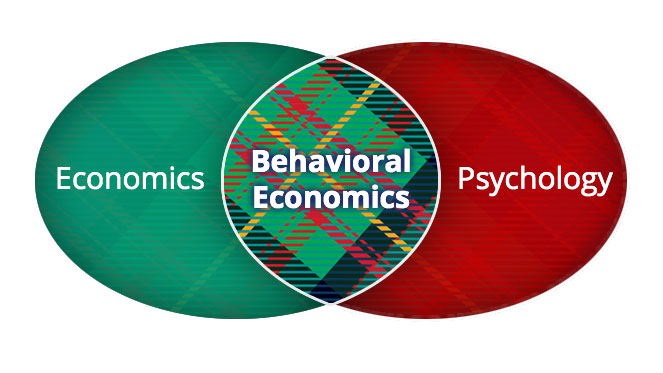
THE LINK BETWEEN ECONOMICS AND PSYCHOLOGY
There is an interesting connection between the field of Economics and the field of Psychology. Both involve the studying of human beings, specifically their behavior. Since our economy is fueled by the decisions made by the people that consist of it, it can be useful for economists to have some general knowledge that allows them to deduce what lies behind an individual's actions and/or thinking. This can be of great use since it gives you a better understanding of what motivates or incentivizes people to do the things that they do, including, for example, how an economy might react to certain changes.
The documentary that we watched in class (Can You Bribe a 9th Grader to be Successful), offered results that showed very minimal improvement in grades. As discussed, since you can’t just attribute this discrepancy to the financial bribe, you also have to consider that there may have been something else that prevented the students from getting and maintaining the desired grades. It could have to do with a diagnosed or undiagnosed learning disability, their home environment, their personality type, and/or their IQ level, etc. Understanding how this experiment may have been affected by other circumstances in these students' lives can really help the researchers determine how much they can contribute the poor results to the ineffectiveness of the bribe or other external variables.
Specifically, Microeconomics focuses on the behavior and effects of individual decisions, and the various interactions amongst them. Psychology encompasses this same branch of thinking, making it incredibly beneficial for economists to have some general knowledge in this field. Knowing and understanding the brain structure and framework behind individuals’ thinking can make economists’ jobs much easier. In a way, it can be the difference between making an accurate or inaccurate economical decision/prediction.
I think this is a really interesting way to look at economics. It reminds me of AP psych where we looked at everything from a biopsychosocial perspective. By just looking at any one perspective you can not see the full scope of the subject.
ReplyDeleteThis is a very interesting post. Whenever you think of economics you think of money and the stock market, you don't realize how much more goes into it. I think that the ways the psychology and economics intersect and interact with each other is very interesting.
ReplyDeleteKayleen, very cool. It seems to be a very intriguing parallel you've drawn here. I agree, since we are ultimately all human beings, even our financial decisions are never going to be completely objective. Furthermore, economics and market behaviour includes both praxeological and empirical aspects. Ultimately, making a financial choice is just like making any other decision, a decision that takes into account value judgments and purpose.
ReplyDeleteIncorporating psychology into economics is super logical, and it can definitely reveal a relationship between someone's incentives, actions, etc and be beneficial to economists and their research. However, I do believe that it is difficult to individually look at the backgrounds of everyone being studied. Sometimes assumptions need to be made, but they can contribute and help a lot when you look at the average person's psychological functions.
ReplyDeleteI agree with your idea that economics and psychology are intrinsically tied. I would further that train of thought by saying that I believe since every person in an economy has thought out reasons for their actions, understanding their reasoning deeply enough may allow economists to predict the exact market trends that would develop, with almost no error. That kind of knowledge could be very powerful in the right hands.
ReplyDelete